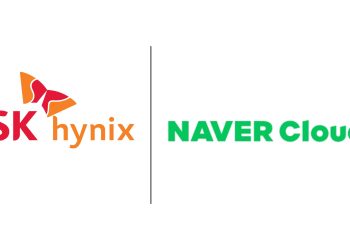Partnership with Hashed and BDAN aims to modernize local currency system and attract global fintech participation
South Korea’s Naver Financial is nearing the launch of its first stablecoin wallet, “Silk Pocket,” in Busan. The wallet has completed its initial development and is currently undergoing final tests ahead of its scheduled rollout next month. According to local reports, Silk Pocket will be designed specifically for everyday payments and local use cases, targeting Busan residents as its first users.
The initiative is being built in partnership with venture capital firm Hashed and the Busan Digital Asset Exchange (BDAN). By integrating blockchain infrastructure with its existing payment network, Naver Financial seeks to strengthen its role in Korea’s digital finance transition and support Busan’s ambition to become a leading blockchain-focused city.
Turning Dongbaek-jeon Into a Stablecoin
One of Silk Pocket’s core functions will be converting Dongbaek-jeon, Busan’s existing regional currency, into a stablecoin format. Currently issued as a prepaid payment card with cashback incentives, Dongbaek-jeon serves 1.5 million monthly users and is widely used to support local businesses. BNK Busan Bank — the currency issuer — is actively studying a shift from its point-based system to a stablecoin-backed model, which would enable:
- Real-time settlement across merchant networks
- Transparent payment records using blockchain
- Reduced operational costs for financial institutions
Officials believe the upgrade could modernize the city’s payments infrastructure and strengthen local commerce in a more data-driven manner.
Integration With Naver Pay and Potential Global Use
Naver Financial plans to connect Silk Pocket with its existing Naver Pay Wallet, which already supports digital asset custody. If regulations allow, both residents and international visitors may be able to convert fiat into KRW-pegged stablecoins directly through the app — eliminating physical currency exchange and lowering transaction fees.
Analysts say this feature could make Busan a pilot zone for regional stablecoin payments, with the potential to expand nationally:
“Busan could become a digital payment sandbox — not just for residents, but for tourism and global fintech testing,” said one industry observer.
Regulatory Risks Remain
Despite strong technical progress, regulatory ambiguity remains the biggest barrier.
The Financial Services Commission (FSC) has not yet defined whether locally issued stablecoins fall under the digital asset category. Without clear legal classification, full transaction features may be restricted at launch.
Samsung’s approach is expected to follow a phased rollout — starting with basic wallet functions and expanding once regulatory clarity emerges:
- Wallet launch – next month
- Limited stablecoin functions – pending FSC guidance
- Full Dongbaek-jeon conversion – after regulatory approval
Launch Coincides With Major Crypto Merger
The wallet launch also comes during a critical moment for Naver Financial. On November 26, both Naver Financial and Dunamu — operator of Upbit — will hold board meetings to vote on a stock-swap merger. A joint press conference is planned for the following day.
If approved, the deal could:
- Make Dunamu a subsidiary of Naver Financial
- Strengthen Naver’s presence in digital asset services
- Position the combined entity for a potential Nasdaq listing
Analysts estimate a potential valuation of ₩50 trillion ($34.5 billion) if blockchain services — including Silk Pocket — gain international traction.
Retail Trading Trends Signal Strong Market Interest
The launch also follows a sharp increase in Korean demand for digital assets. During the Chuseok holiday trading week — when local markets were closed — South Korean retail investors invested ₩1.68 trillion ($1.24 billion) into U.S. tech and crypto-linked stocks.
Popular purchases included:
- Direxion Daily Tesla Bull 2X ETF ($151M)
- Iris Energy ($105M)
- BitMine Immersion Technologies-linked ETFs
- Meta Platforms and Tesla stocks
This surge, analysts say, has shown rising confidence in AI-driven and blockchain-linked investments, increasing the relevance of domestic stablecoin services.
Busan Emerges as a Blockchain Finance Testing Ground
With Hashed and BDAN providing core blockchain infrastructure, Silk Pocket is positioned as a flagship project within Busan’s effort to build a localized blockchain financial system. More service details are expected at Blockchain Week in Busan (BWB) 2025 on February 22, where Hashed CEO Kim Seo-jun is scheduled to present the initiative.
If successful, Silk Pocket could become a replicable model for other cities, combining:
- Regional currency systems
- Stablecoin-based payments
- Private-sector fintech platforms
- Smart city digital infrastructure
“This is not just a wallet launch — it’s a blueprint for how local economies could run on blockchain,” one analyst noted.







